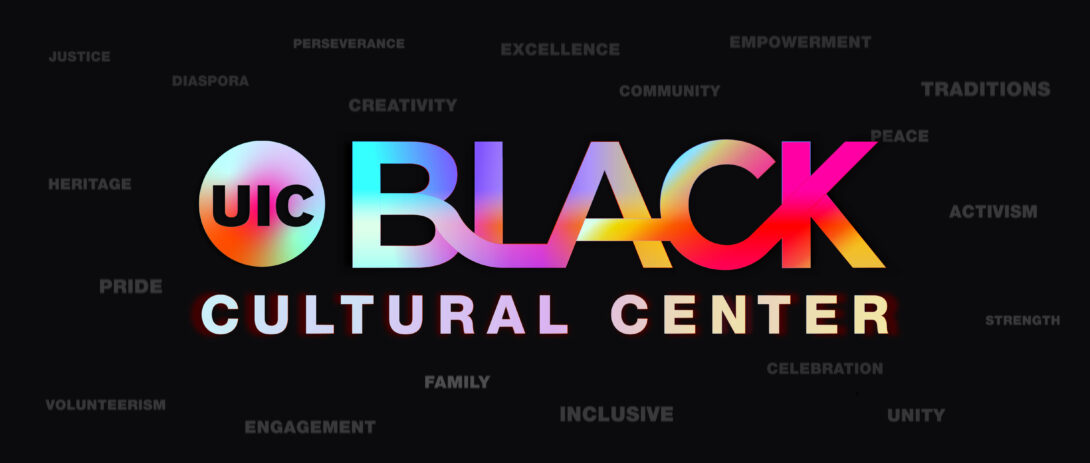New Name Brings New Era to the UIC Black Cultural Center
x

The start of the 2023-2024 academic year brought a major change to the UIC African American Cultural Center (AACC) as it officially changed its name to the UIC Black Cultural Center (BCC). The change is meant to embrace the more expansive, inclusive and global term of “Black” in order to more accurately reflect the experiences of the campus community.
This name change journey initiated back in 2021 during the 30th anniversary of the former AACC. That milestone prompted discussions about how the center–with its mission to provide a place for all UIC students, staff and faculty to gather, learn, share and explore the diverse histories and traditions of people of African descent from around the world–could better represent their diverse student population.
“This shift reflects a truly diasporic vision for the center, one that has existed in fact, but that will now be announced in our name as well,” said Cynthia Blair, PhD, director of the BCC and associate professor in history.
To determine if the idea of a “Black” cultural center resonated with the campus, the center solicited survey feedback from students, staff and faculty. Members of UIC’s Black community enthusiastically embraced this effort with students, in particular, pressing for the change and sharing their thoughts on what “Black” meant to them.
One student wrote: “The power that comes from a name could be life-changing.”
A faculty member noted that “Black is a political color” and that claiming it as a banner for the center is one way of showing solidarity with the larger Black Freedom Struggle both in the U.S. and globally.
The support for the name change was overwhelming and highlighted the urgency regarding inclusivity and community along with a broad recognition of how the BCC must occupy space on campus.
“Our name change is more than a semantic shift, but one that embraces our community’s diasporic histories, experiences and cultures,” Blair asserted.
In addition to this significant name change, the center space also underwent substantial remodeling over the past year. This transformation seeks to launch a new era at the BCC, reflected in its ongoing campus and community engagement.
The center closed out the 2022-2023 academic year with their 2nd Annual Black Student Leadership Summit where they invited student leaders to reflect specifically on community activism and food justice. Students attended panels and workshops with campus leaders and Chicago-based food justice activists to explore topics of environmental racism, the urban farming movement and community wellness. With this work, the BCC created new community partnerships that will deepen the impact of their Carver Sustainability Project.
Continuing into the new fall semester, the BCC is developing programming focused on the history and cultural impact of Black dance as well as working on an exhibit that will celebrate the history of the BCC, inviting students to think about the historical significance of Black cultural centers and the power of student activism.